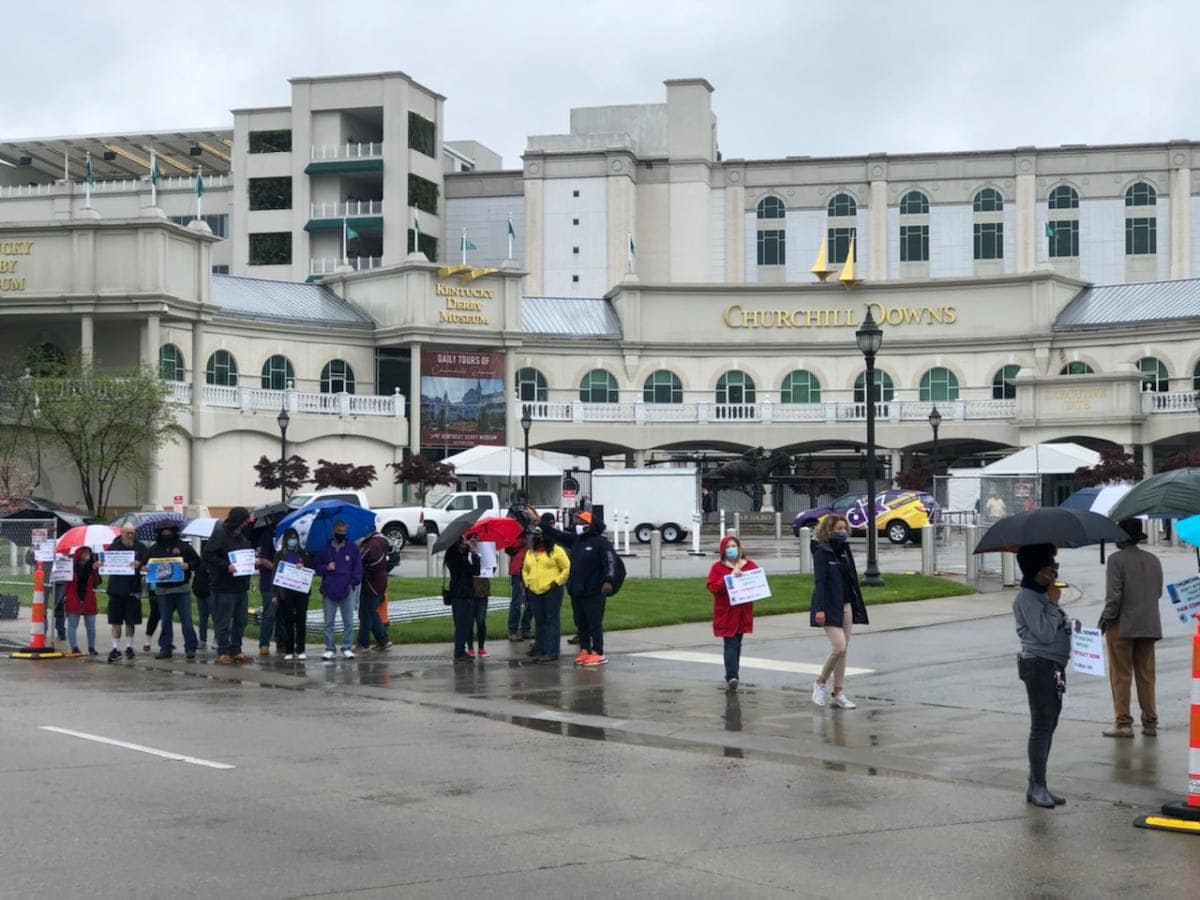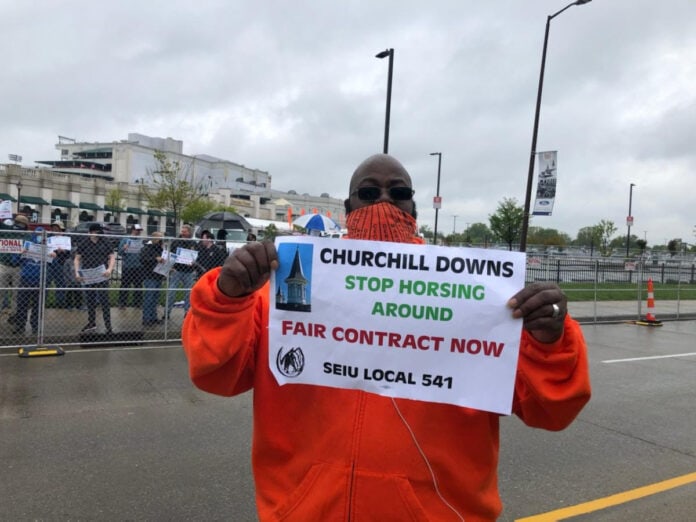LOUISVILLE — After a weekend of protests with community and labor allies calling on Churchill Downs to do by right by its employees, the Licensed Racing Valets who are essential to the Kentucky Derby’s success are still without a contract and say they are willing to do whatever it takes to hold the hugely profitable company accountable. Protests and demonstrations are expected to continue this week. Historically, Derby Week generates tens of millions of dollars in revenue for the Louisville business community and the entire Commonwealth. Labor unrest and disruptions could greatly reduce the amount of revenue for local area businesses, virtually all of which were harmed last year when Derby Week was cancelled on account of the Covid-19 pandemic.
Churchill Downs Incorporated posted $1.054 billion in net revenue for 2020, and its CEO Bill Carstanjen made $10.5 million, yet the company is refusing to pay its valets at Churchill Downs Racetrack (CDRT) and Turfway Park a fair wage and provide basic workplace protections to ensure adequate staffing levels at the racetracks.
“There’s no Kentucky Derby without the hard work of our Licensed Racing Valets, and Churchill Downs’s disregard for their basic needs is a slap in face after our members have spent decades building the company’s profits,” said Don Vest, President of SEIU Local 541. “Churchill Downs is so greedy that they’d rather threaten the Derby experience for millions of people and deprive local businesses of much-needed revenue than pay workers a modest amount of money that the CEO makes before he finishes his morning cup of coffee.”

Valets Work is Critical To Success & Safety Of Kentucky Derby
The Licensed Racing Valets are highly skilled workers whose work is critical to the success and safety of the Kentucky Derby operation. They must saddle the racehorses and make sure each horse is compliant with stringent racing regulations. The Racing Valets at CDRT, along with those at Turfway Park in Covington, Kentucky, have been working under expired contracts for months. Churchill Downs abruptly cancelled negotiations scheduled for last week after the Racing Valets’ union, sent its proposals to the company. Churchill Downs has refused to return to the bargaining table, choosing instead to pressure the Racing Valets to accept substandard wages and pension benefits, some of which have not been increased for as many as 22 years. Their decision reflects its willingness to gamble with the livelihoods of its loyal employees as well as those of the local and regional business community.
Thirty-five year valet Ronnie Shelton expressed his frustrations with the company’s disregard for its employees to ABC affiliate WHAS 11 at a protest Saturday: “…I don’t understand their feelings on it. This is the last thing in the world we would want at this point in time. It’s a cloud and it’s over Churchill and it’s over us.”
He continued: “It’s kinda hurtful, you put in all these years in the job. And you devote yourself to it.”
Racing Valets Are Asking For Modest Increases
The ratio of the CEO’s compensation to the median salary of the other full-time employees in 2020 ($26,000) is 404:1. In the first few seconds of opening betting, the company easily makes the $27,000 it would cost to fully cover modest raises for its entire valet workforce.
The Racing Valets’ attorney told the Louisville Courier Journal, “This is a corporation that just takes, takes, takes, and we’re asking — for members of our community who are essential to the races — we’re asking for just a semblance of justice in their contract.”
Former candidate for U.S. Senate and former State Representative Charles Booker rallied with the workers on Saturday. Affirming his support for the workers and his calls on Churchill Downs to settle a fair contract, he said, “Whenever there’s an opportunity to fight for justice and to fight for equity, you’re going to see me there.”
The Licensed Racing Valets are currently paid about $16 an hour and are asking for modest increases to their pay and contributions to their retirement accounts to provide financial stability for themselves and their families. They are also asking for guaranteed valet staffing levels at live races to ensure consistency and safety. In order to make a living at racetracks that only provide work for 40-80 days per year, valets must travel throughout the country to different race tracks and are responsible for their own travel and housing costs.















